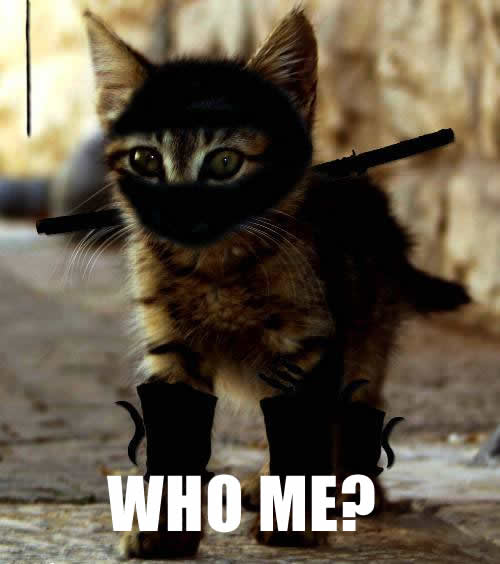Very often, I get questions from fans which I attempt to answer as quickly as they arrive.

Photo Credit: ooVoo.com
One of the page followers asked for more information on ooVoo…what follows is my response to Marie (thanks Marie for the great question). In the meantime, there’s a new arrival in the cootie community and it’s called Flinch (that review follows below after ooVoo).
Internet Safety Tips for Children & Teens: Big Mama Reviews: ooVoo
ooVoo is essentially a benign videoconferencing app/website. Think: Skype or Facetime. On its own merits there is nothing egregious here. HOWEVER: online gamers have made this their favorite way to see and communicate with each other live while they game. It’s popular among Minecrafters, etc.
Recently, ooVoo has added some other features in addition to the videoconferencing (see below).
What you need to know about ooVoo
- Sexual predators love ooVoo (for obvious reasons).
- Sexual predators can reach out to your child without knowing them in real life via the ooVoo directory. You only need 3 characters of a person’s ooVoo ID to see a list of similar usernames. Sexual predators will troll these and see if they can discern if the user is a child (most are).
- The app/website allows users to group text, group-watch YouTube videos (watch out for the massive amount of porn on YT), and they can also video record a video call (so can the OTHER person communicating with your child)
- Children under 13 are not allowed to setup an account – so they lie about their age – routinely.
- The site captures DOB, gender and other personal info.
- Users can mass-invite all of their Facebook & Twitter friends/followers, all of their Gmail email contacts, and Yahoo email contacts. This means that if they have friended, followed, or emailed people that they don’t know in real life – those same people will be invited to video connect with your child.
First an ooVoo story – are you sitting down?
OGeek fans who have seen my live presentation have heard this story. …
I was presenting to a large audience in NE Ohio, and this mom (to her credit) raised her hand and offered the following story….mom told us how every single day her son would rush off the school bus and snap on the tablet in order to play Minecraft. On this particular day mom got to the tablet before the son did, in order to look up a recipe for dinner. When she turned on the tablet she saw a live and naked man on the screen via ooVoo. This sexual predator was waiting for her son to get home, and she accidentally intercepted the communication.
Bottom line on ooVoo
- Children under 13 have no business using ANY of these apps, social media, or websites per COPPA Federal regulations, but more importantly because *Big Mama said so* ….that’s me 🙂
- The risks here are high – it requires parents needing to constantly be checking in on the child at the moment that he/she happens to be using the app. What makes it more difficult is the fact that if the child has an ooVoo account they can access it on almost ANY device. So you may not even know that he’s using it in the basement on the tablet rather than where you’re expecting him to use it like on the PC.
- Letting your child use this app adds a significant amount of work to YOUR life
- If your child is 13 or 14 I say NO. Well I would say ‘hell no’ – but that’s your call.
- If your child is 15 and up you need to make it clear that sexual predators are on the hunt for kids their age and will do whatever they can to get their hands on them. This is not an over exaggeration. If you don’t want to have that conversation or if they don’t believe you – then ‘no’ is a much easier solution.
The Barf Thickens.
Internet Safety Tips for Children & Teens: Big Mama Reviews: Flinch Game App

Photo Credit: Flinch Game: http://makemeflinch.com
If you’ve read the review above on ooVoo you can probably see why the app/website is a terrible idea for children. But do you know what would be even WORSE? If there were a game based on the ooVoo platform where users can open up a live stream with each other and play a live “game”, competing for example to see who cracks a smile first. Sounds cute. It’s not….and it’s called Flinch
Basically this is the equivalent of a staring contest with friends or strangers. Originally the app was created to be used for adults in a business setting due to its facial recognition. Six million individual games are played every single day and it’s growing by 98k users every single week. The software automatically determines the winner. (yeah so, creepy).
The big issue is that you are LIVE streaming with people you might know, and people you might NOT know. Sound familiar? The option to play with a friend, or randomized play is open to the user. You can’t black list or white list.
The app description in iTunes specifically states that you have to be at least 17 years old to download the app, which of course is being completely ignored by the legion of 11-15 year old’s using the app.
In the end though, Flinch is meant to be a game where you earn tokens in order to purchase in-game distractions so that you can win even more tokens. So we can reward these children (who are not meant to be playing the game in the first place) with points, and tokens, and higher rank. Zing-Pow-BARF
The rest is obvious:
- There is NO WAY that your child is NOT going to accidentally meet up with a sexual predator (see review below from a user)Your child can be victimized by cyberbullies they KNOW and those that they haven’t met yet
- Your child is literally opening up a live visual link into his/her bedroom and into your home
- One user can easily take a screenshot of the other user during the live stream
- The app was CREATED by the app developer for users over 17 years old. Did they really think that young adults and adults were going to spend time playing visual chicken by *smiling*?
Again, just to be clear – it’s not the app developers fault that there are sexual predators in the world who are going to jump all over this, and already have.
Here’s a review that was posted by a Flinch user on the iTunes page for the Flinch App
“This app was so great people wise and now basically the only people I see on here are grown men from Saudi Arabia. This is super difficult with the languages and given the fact that I’m a teenager and want to be talking to other teens rather than horny guys who speak different languages. “
Bottom line review on Flinch Game: Parents: your children under 17 years old should NOT be using Flinch, per the app developers guidelines. This is a big NO.
Did you learn something? **Read. Learn. Share.**
— “Big Mama”


 Recently I had the opportunity to present to the members of a fantastic organization called
Recently I had the opportunity to present to the members of a fantastic organization called